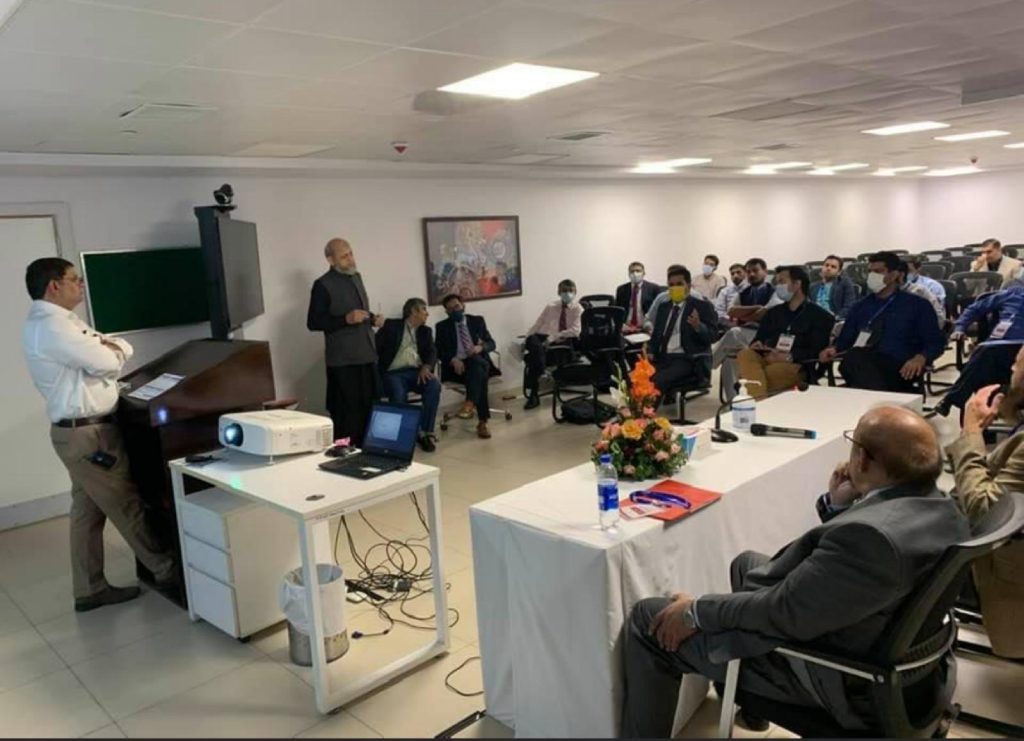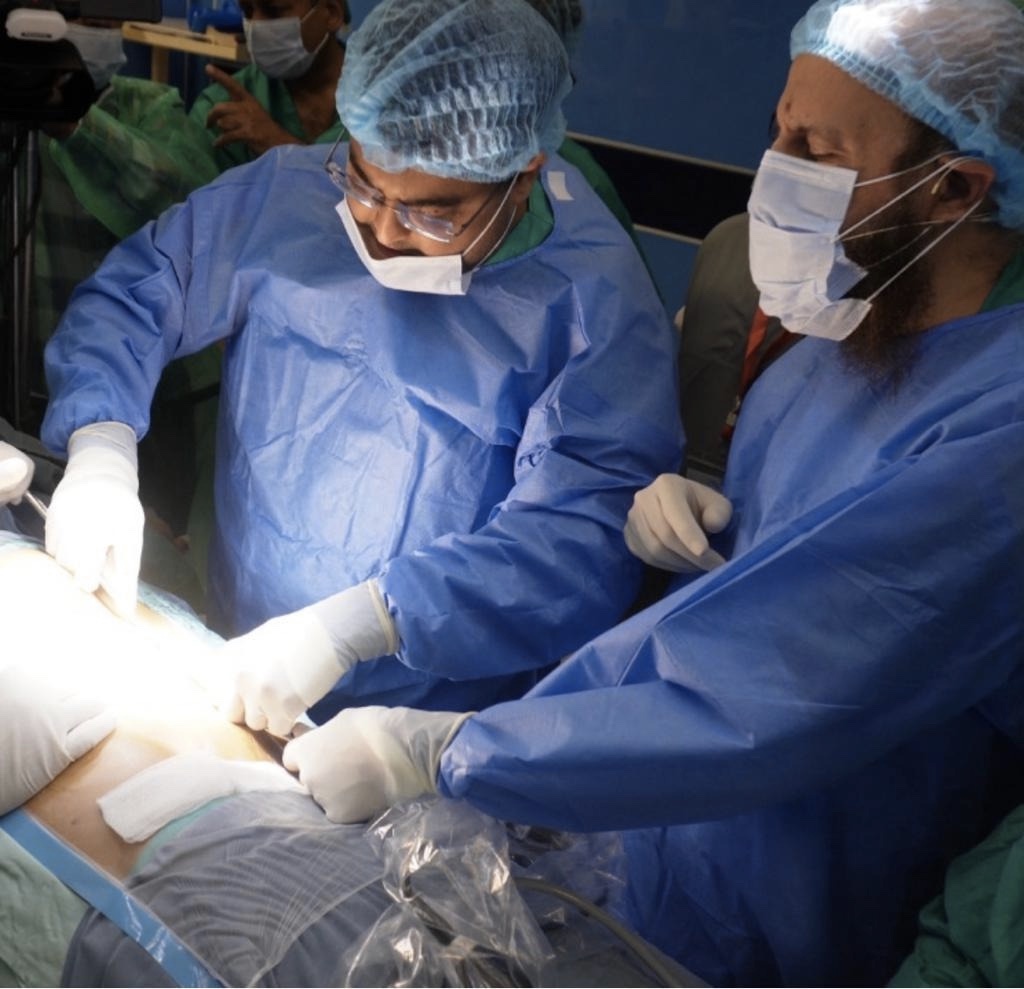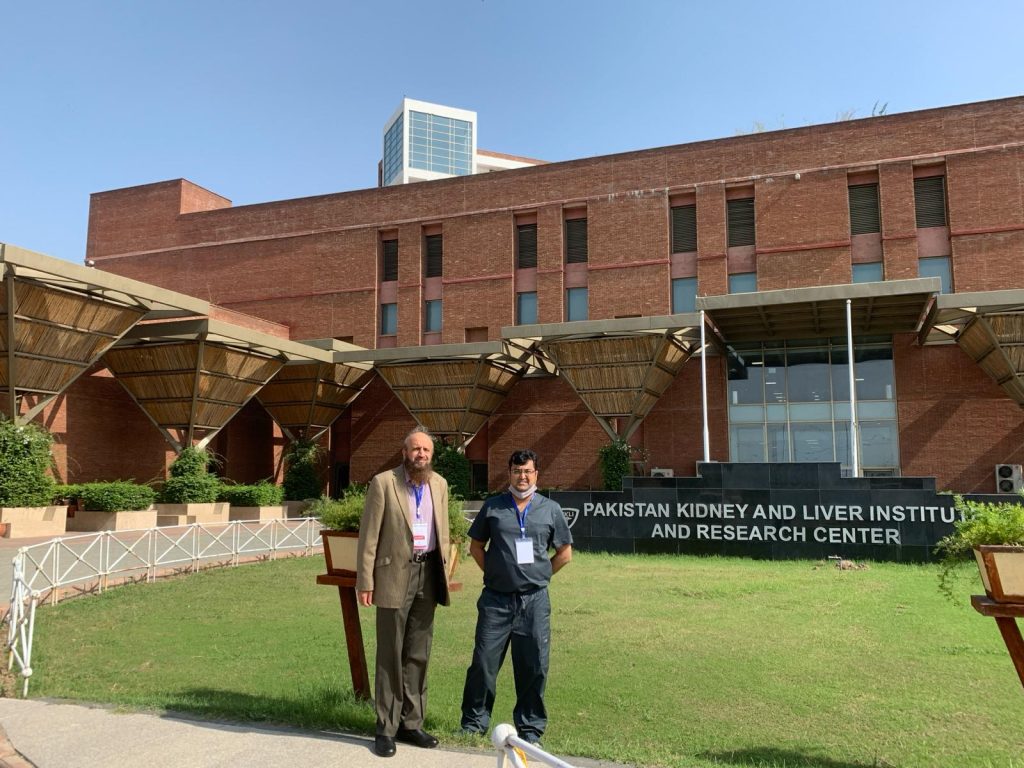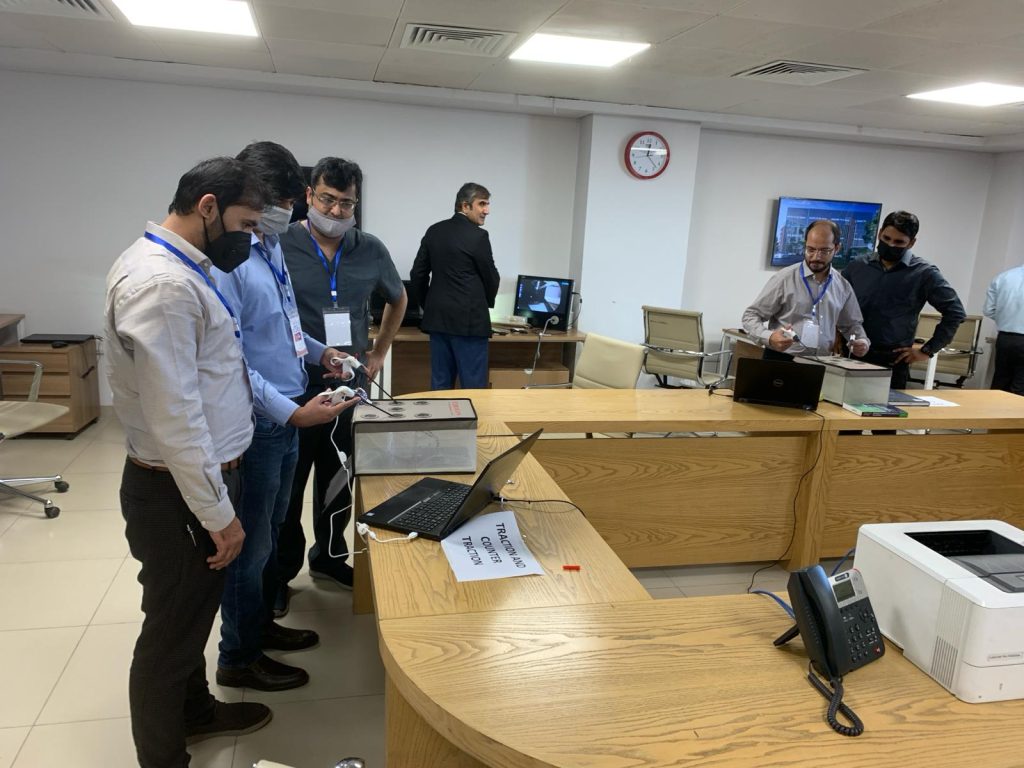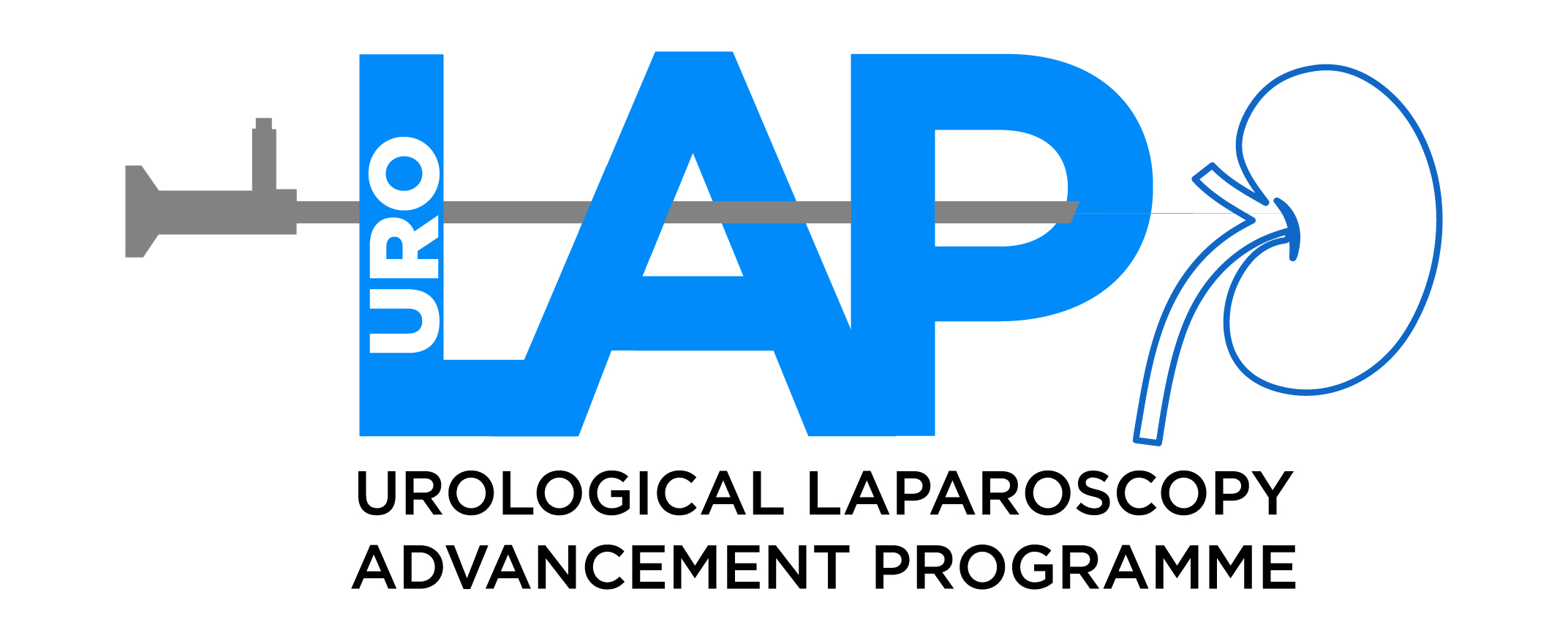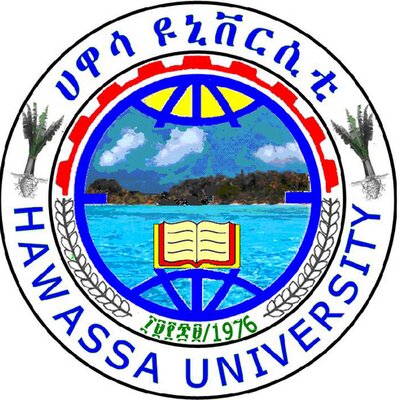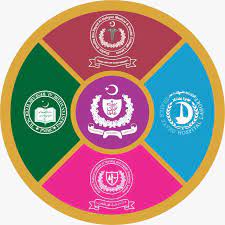Established in 2017, this 800-bed hospital facility specializes in liver and renal diseases, including transplant surgeries. The institute houses a fully functional Urology department led by Dr. Nadeem Nusrat, who brings nearly two decades of training and practice experience from the Republic of Ireland. Joining him in the faculty are Dr. Nauman Zafar and Muhammad Shujah.
The Urology department boasts well-established laparoscopic urological services, conducting over 120 laparoscopic urological procedures annually, alongside approximately 60 live hand-assisted laparoscopic donor nephrectomies performed by the transplant team. This center, along with others like Shaukat Khanum Memorial Hospital are positioned ideally to facilitate laparoscopic Urological training in the province. I was honored to be invited, and we collaborated with the host faculty and Asim Chaudry, who recently concluded a successful workshop at Pakistan Kidney Centre, Abbottabad. I am thankful to RCS Glasgow and Prof. Abhay Rane for endorsing this course on short notice.
Laparoscopy Simulation and Live Surgical Workshop
25-27th October 21
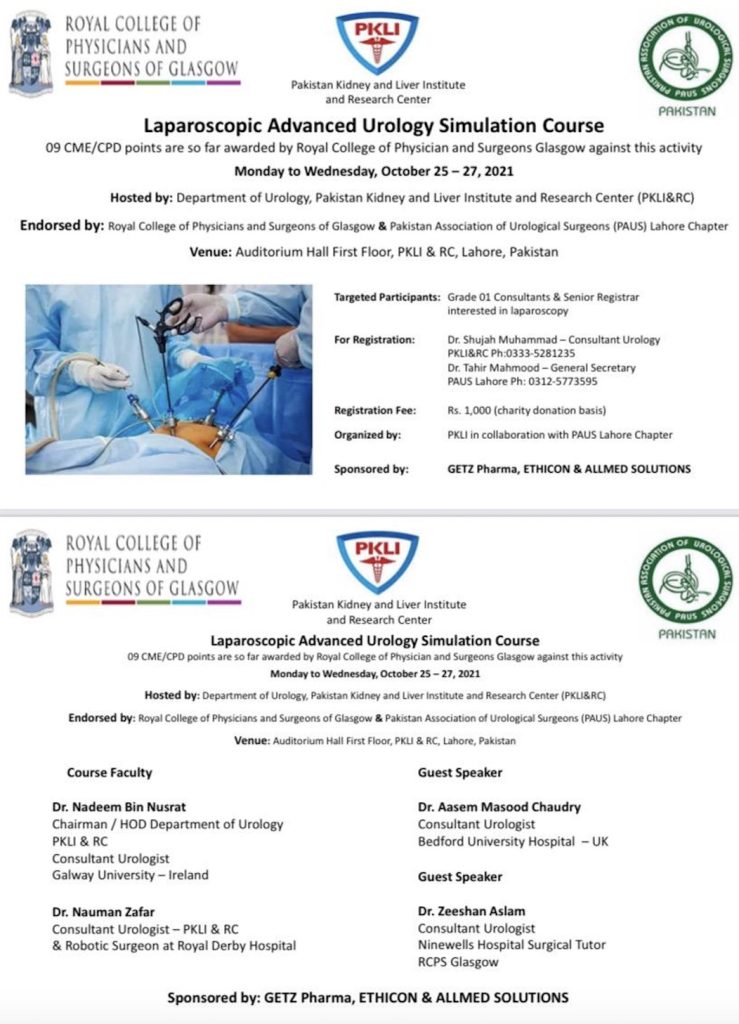
Over 30 delegates, including residents and consultants from Punjab, participated in the workshop.
Day 1 featured lectures and simulation sessions in the pre-lunch session, followed by a live laparoscopic radical nephrectomy in the afternoon for a 67-year-old male from Lahore with an 8 cm left renal mass. We met with the patient and family, providing appropriate counselling about the procedure. Drs. Nusrat and Asim entrusted me with performing the live procedure, while Zubair Cheema moderated discussions with colleagues in Lahore.
Thanks to the calm and reassuring assistance of Asim Chaudry, the procedure was completed without any issues, with delegates engaging in discussions throughout the procedure.
Day 2 commenced with lectures and simulation sessions, followed by a live laparoscopic retroperitoneal nephrectomy for a non-functioning kidney performed by Asim Chaudry, effectively moderated by Nauman. Day 3 was dedicated to further simulation sessions for delegates, particularly juniors, with Asim performing another Lap Pyeloplasty, moderated by Nauman. Post-operatively, we received updates that all patients had recovered well.
Overall, it was a highly productive three days, with the host organizing team achieving a sense of accomplishment as the new generation of Urologists displayed enthusiastic engagement, while senior practitioners actively participated in valuable discussions about the demonstrated procedures. Colleagues from centres without established laparoscopy programs engaged in fruitful exchanges about setting up similar services.
We emphasized the importance of local institutional collaboration within Pakistan for the widespread adoption of laparoscopy in the country. We remain optimistic that continued efforts to organize such workshops with local colleagues at short intervals will help us achieve our goals.
We are grateful to Getz Pharmaceuticals for supporting the workshop.
